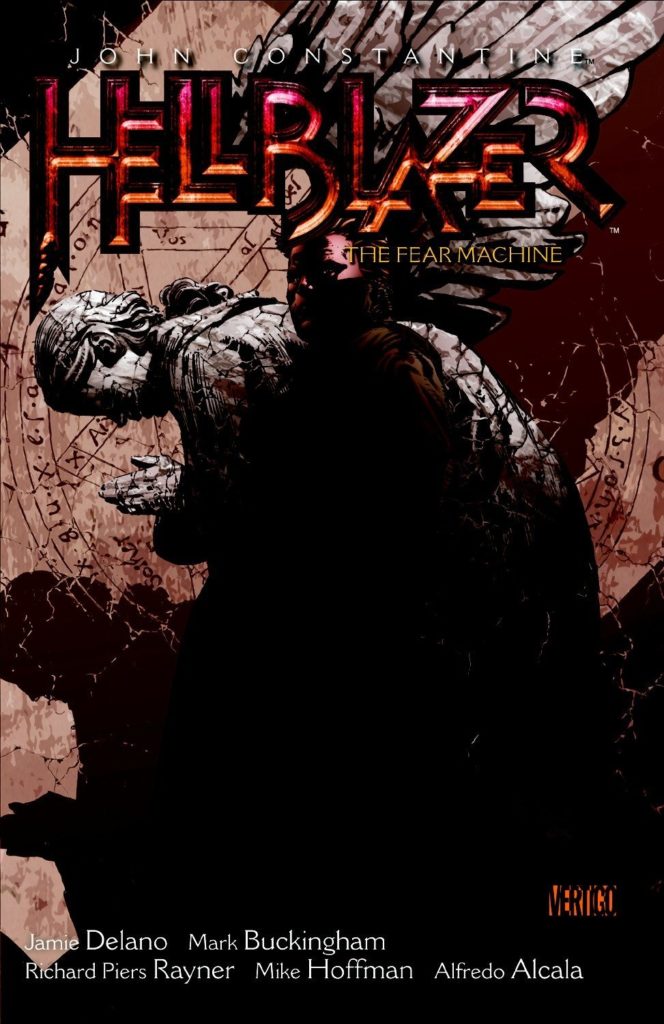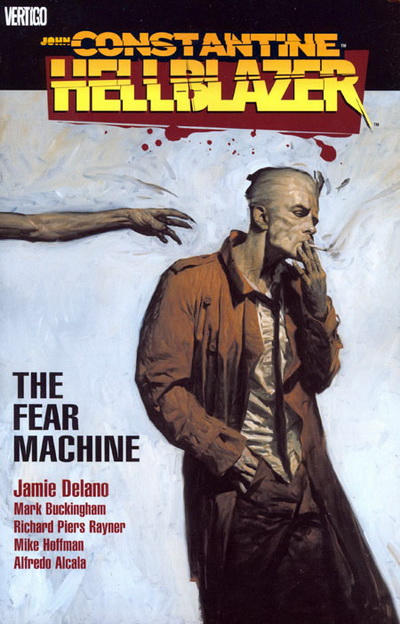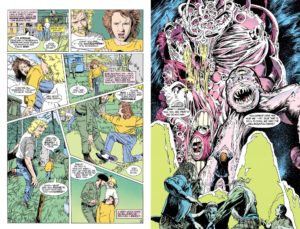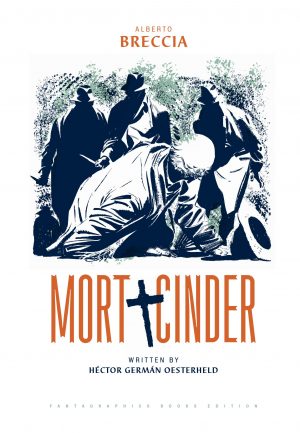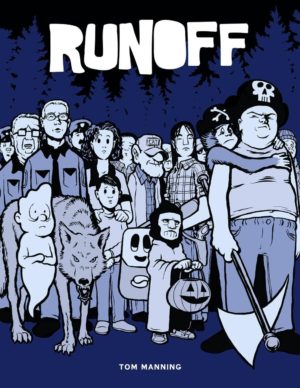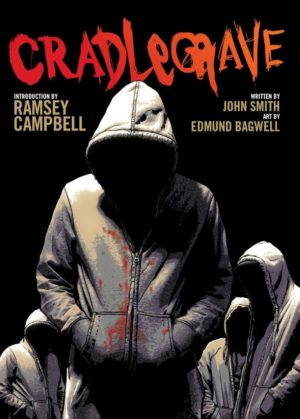Review by Karl Verhoven
The Fear Machine is Jamie Delano thinking outside the box about forms of horror. His work over the two previous collections had included a healthy dose of social commentary, and this looks at new age beliefs.
When John Constantine muses “I need something to kick my arse and get me moving… to give me a jolt”, he should be more careful what he wishes for. Like ‘The Horrorist’ in The Devil You Know, this is a story that begins with Constantine removed from his comfort zone, roughing it in the countryside, where he becomes involved with a travelling community. This is a sympathetic treatment of a group still vilified by Britain’s right wing press, kindly, welcoming and somewhat disorienting for Constantine, whose usual defence mechanisms are shrugged off. Delano runs through the full lifestyle process and drawbacks before heading into the main story. It fits the cynical world in which Constantine operates, where the establishment is never to be trusted and considers ordinary people dispensable, particularly when they’re looking to empower themselves via exploitation of ancient forces.
It’s a shame a single artist doesn’t handle the entirety of ‘The Fear Machine’, but it’s also easy to see how the detailed and precise work of Richard Piers Rayner was never going to meet monthly deadlines on a regular basis. His opening chapters are very nice, open and pastoral. The middle chapter drawn by Mike Hoffman finally explains what the sinister forces are up to, and Mark Buckingham puts in an impressive turn when stepping up from inking to pencilling over the final five chapters. He’s a visual chameleon, drawing from John Ridgway’s urban environments as seen in Original Sins, then moving into a passable approximation of Rayner’s style for other elements.
Truth be told, ‘The Fear Machine’ drags on too long. The way Delano keeps introducing new characters is interesting, as is the way he works them into events, and there’s some nice foreshadowing and symbolism, but throwing the freemasons in toward the end is when the story finally snaps from an addition too far. An end point has always been the restoration of Constantine, and while the actual ending is attuned to themes established throughout, it’s unconvincing and drifts too close to cliché for comfort. Also, having drawn everything to a close, Delano can’t make his excuses and leave fast enough. There’s no post coital wind down, just a sharp exit, which is certainly in character for Constantine, but unsatisfying for readers. The Family Man is next.
